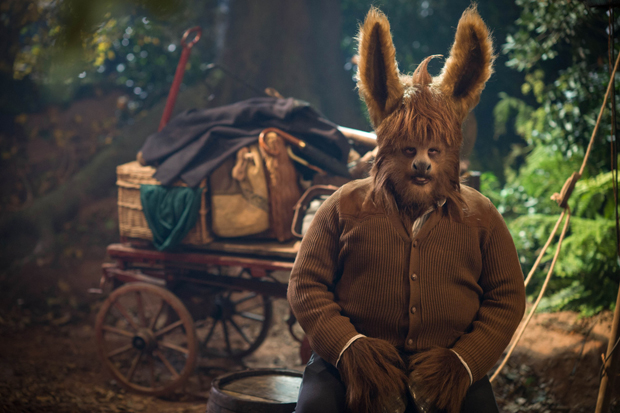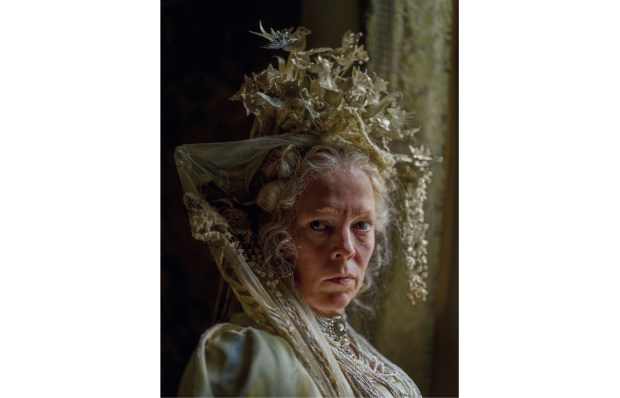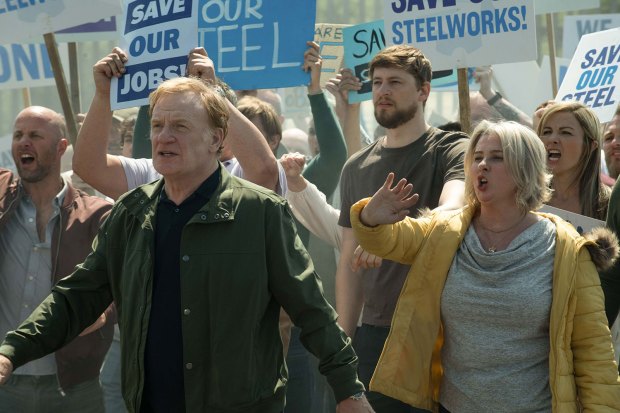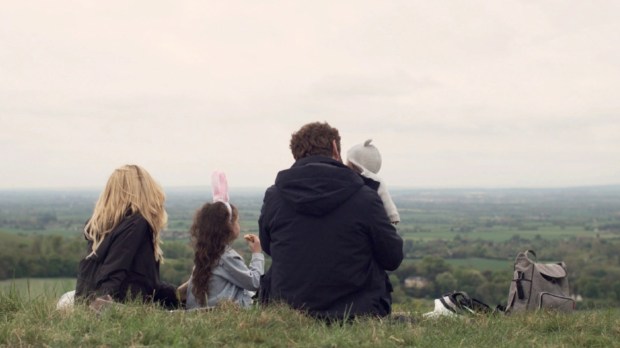Spoiler alerts aren’t normally required for reviews of Shakespeare — but perhaps I’d better issue one before saying that in BBC1’s A Midsummer Night’s Dream (Monday) Theseus dies near the end. Not only that, but Hippolyta and Titania fly off on butterfly wings to become lovers, and the mechanicals’ play goes down a storm. Personally, I’ve never been sure about the existence of that mysterious tribe known as ‘Shakespeare purists’. If they do exist, though, Russell T. Davies’s heavily cut and cheerfully tweaked adaptation seems almost deliberately designed to flush them out.
Famous, of course, for reviving Doctor Who, Davies here showed a similar fondness for jumbling together different eras — not, admittedly, a betrayal of Shakespeare’s original. The idea that Theseus’s soon-to-be wife Hippolyta was his prisoner of war also has some basis in the play — although the fact she was wheeled into the distinctly fascist Athenian court like Hannibal Lecter was maybe pushing it a little. Meanwhile, the various lovers were planning their escape by iPad.
We then cut to a pub called the Old Mechanicals, set in a nearby Elizabethan street, where a carefully multicultural selection of modern Brits were discussing their forthcoming production of Pyramus and Thisbe. And from there it was off to the woods, where the Doctor Who influence was again hard to ignore. In 1967, the Shakespearean scholar Stanley Wells wrote of A Midsummer Night’s Dream that ‘Over-exploitation of the play’s opportunities for spectacle has too long a history’. Now Davies’s version extended that history by another 49 years, as the CGI went into overdrive.
At times, in fact, the visuals threatened to overshadow the shifting loves — especially as, in this 90-minute version, those loves had to shift so quickly. The main question, though, was how on earth Davies was going to combine that dark opening with his essentially jolly view of young love. The answer, it turned out, was pretty shamelessly but rather effectively.
Once everyone was back at court, Theseus’s role as the representative of joyless, straight, white, middle-aged maleness meant his death was required to pave the way for a big — and let’s face it — gay finale that drew a lot more than Shakespeare did on the film Frozen. After Hippolyta’s straitjacket (literal and metaphorical) was removed so she could fly free, everybody ended up singing and dancing in a warm celebration of human/sprite togetherness.
Now, I like a good harrumph as much as the next man. Unfortunately, Davies went for his overwhelmingly happy ending with such infectious zest that even the usually reliable pleasure of moaning about middle-aged blokes being regarded as the baddies felt beside the point. I’m also willing to bet that the grumpiest of my peers will have been hard-pressed to restrain an inner cheer when the amateur actors received their standing ovation, or when Titania blew Bottom a final kiss — both moments that seemed an authentic as well as touching reflection of Shakespeare’s underlying fondness for the mechanicals.
Of course, it’s often said that if he were alive today, Shakespeare would be writing for television. But whether or not that’s true (and I have my doubts), one thing we can now say for certain is that he wouldn’t be writing for Versailles, BBC2’s inexplicable new French import about Louis XIV. The programme does have English dialogue, but this isn’t a particularly wise move either — not when Louis established the setting by asking a courtier, ‘Bring my architect here to Versailles, I want to talk about mirrors’; or when he greeted one of his mistresses with a cheery ‘Spring is sprung.’
On the whole the programme consists of sex and violence with a light dusting of history, sometimes all in the same scene: at one point a man having a threesome in a brothel was stabbed through the hand for siphoning off taxes. On the whole, too, the men look like 1970s prog-rockers experimenting with a 17th-century French look, while the assorted court minxes do a neat line in acting flirtatiously — never that difficult when you’ve got your top off.
And even when Wednesday’s programme was over, the excruciation wasn’t. Each episode is followed by a little chat between Greg Jenner, once the consultant to CBBC’s enduringly brilliant Horrible Histories (what a falling off was there!), and Professor Kate Williams, an academic whose willingness to appear on television might strike Peter Andre as a bit brazen.
Their impossible job is to discuss the real history behind Versailles without giving away the awkward truth that there isn’t much. Instead, Kate declared that what we’d just seen was ‘an amazing episode’ with bags of sex. ‘Louis was known for loving the ladies,’ added an understandably sheepish Greg — before going on to deploy such natty euphemisms as ‘Some historians have gone down that path’ when faced with the show’s more obvious inventions.
Got something to add? Join the discussion and comment below.
Get 10 issues for just $10
Subscribe to The Spectator Australia today for the next 10 magazine issues, plus full online access, for just $10.
You might disagree with half of it, but you’ll enjoy reading all of it. Try your first month for free, then just $2 a week for the remainder of your first year.














Comments
Don't miss out
Join the conversation with other Spectator Australia readers. Subscribe to leave a comment.
SUBSCRIBEAlready a subscriber? Log in